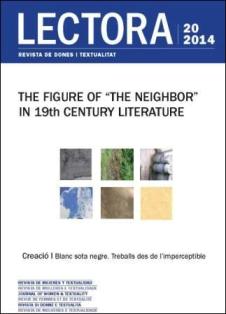The Rift at the Boundaries of Europe: Dostevsky's Russia
Keywords:
Europe, Russia, Dostoevsky, nation, consciousness, communityAbstract
The nineteenth century saw the development of European industrial modernity together with its medieval inheritance. In this context, Russia entered the century as the boundary of Europe, and a place where staunch Russian tradition came into conflict with Western ideas. Russian intellectuals from the second half of the century, including Dostoevsky, dedicated their lives and work to tracing this integration in a deliberate manner and, above all, to avoiding the individualistic defects that capitalism had already instilled in Western culture. The Underground Man or Raskolnikov are instances of Dostoevsky's efforts to explain the alienated consciousness conceived by European modernity in an almost mythological way through iconic figures such as Napoleon. On the other hand, Saint Petersburg serves as a stage for his characters' struggle, depicted as disoriented intellectual souls facing society's progress. Dostoevsky's awareness of the origins of Russian tradition, as well as of the prevailing Western values that were inevitably influencing the neighboring territory, became some the writer's main concerns, who thereby tried to find, almost desperately, a solution to the consecutive and progressive fragmentation that the Russian nation was suffering. The main purpose of this essay is, therefore, to delve into the causes, the consequences and the evolution of these events, in order to give an account of the incipient rift between Europe and Russia, which is, currently, still a relevant and meaningful topic.Downloads
How to Cite
Issue
Section
License
The Author retains ownership of the copyright in this article and grants Lectora: revista de dones i textualitat the rights to print publication of the Article. The work will be available under a Creative Commons Attribution-Noncommercial-No Derivative Works license, by which the article must be credited to the Author and the Journal be credited as first place of publication.
The Author is free to enter in seperate, additional contractual agreements for the non-exclusive distribution of the work as published in this journal (such as institutional repositories or a book), as long as the original publication in Lectora is credited.
The Author is encouraged to post the work online (eg in institutional or thematic repositories, or in their website), as it can lead to productive exchanges as well as to a greater citation of the published work (see The Effect of Open Access).




